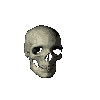





This is another
report I picked up on the Internet giving even more problems cased by....

Agent Orange was an herbicide
employed during the Second Indochina War commonly referred to as the Viet
Nam War. Agent Orange was not the only herbicide
sprayed in Vietnam although, due to its intensified usage, it is the herbicide
most commonly mentioned and blamed for health problems in connection with that
period in history. There were two other herbicides, an insecticide and a
chemical irritant used during the Second Indochina War. They each were called
by code names: Agent Blue, Agent Orange, Agent White, CS and Malathion (NOTE:
More listed on my AO page).
Agent Blue: code name for cacodylic
acid (dimethyl arsenic acid; 371.5 km/m3)
Agent Orange: code name for
mixture of 2,4,5-T (2,4,5.-trichlorophenoxyacetic acid; 545.4 Kg/m3) and 2,4-D
(2,4-dichlorophenoxyacetic acid; 485.1 kg/m3), altogether weighing 1 285 kg/m3;
a herbicide; associated with the (2,4,5-T moiety is the impurity dioxin
(2,3,7,8-tetrachlorodibenzo-p- dioxin).
Agent White: code name for a
mixture of an approximate ratio of 4:1 of 2,4-D (2,4-dichlorophenoxyacetic
acid; 239.7 kg/m3) and picloram (4-amino-3,5,6-trichloropicolinic acid; 64.7
kg/m3)
CS (o
-chlorobenzalmalonitrile), an anti-personnel (harassing) agent, was used as an
irritant from 1964 to 1970.
Malathion
(S-(1,2-dicarbethoxyethyl)-0, 0-dimethyldithiophosphate), an
insecticide, was sprayed from 1967 to 1972.
Agent Orange (A-O) and Agent White (A-W) contain mixtures of
plant hormone mimicking compounds which destroy plants by interfering with
their normal metabolism. Agent Blue (A-B) destroys
vegetation by preventing plants from retaining moisture. These chemical products
were used in Viet Nam during the years 1961 to 1971. The three year period from
1967 to 1969 herbicide usage was at its heaviest. A-O (61% usage) and A-W were
effective against dicotyledonous plants (two leaves emerging from seed) and A-B
(11% usage) was used for monocotyledonous plants (single leaf emerging from
seed). A-W and A-O were used to destroy the forests of South Viet Nam while A-B
was mainly used for the destruction of grain crops, particularly the staple
crop of rice. The levels of usage for military operations were 20 to 40 times
greater than for normal agricultural usages. Fixed-wing aircraft and ground
troops dispensed these chemicals.
Loss of foliage,
flower and fruit occurred within two to three weeks after spraying. Not all of
the trees died and a large percentage of those surviving trees were permanently
damaged. Environmentally, because it was in a tropical area, there was an
increase in soil nutrient loss and acceleration in soil erosion. Dioxin has an
environmental half-life of about three years or more and has shown up in the
food chain. The effect of A-O on humans has been an area of intense debate for
the past two decades. It has now been thoroughly established that dioxin is a
very potent poison. It can cause a wide range of organ and metabolic
dysfunctions. In laboratory animals dioxin has shown to be carcinogenic
(causing cancer) and teratogenic (causing birth defects) and mutagenic (causing
genetic damage). I have listed a summary of reported Agent Orange symptoms and
effects at the end of this article
·
chloracne
·
liver
dysfunction
·
severe
personality disorders
·
cancers
·
birth
defects
·
Please see
my AO
page for problems
listed by the Veterans Administration
Cancer:
·
tumors
·
liver
·
lung
·
testicular
·
ear duct
·
soft tissue
sarcoma
·
non-Hodgkin’s
lymphoma (NHL)
Cardiovascular:
·
elevated
blood pressure
·
blood
deficiency (anemia)
Endocrine:
·
enlarged
male mammary glands (gynecomastia)
·
excessive
milk flow from nipples (galactorrhea)
·
decreased
sexual desire
·
difficulty
maintaining an erection
Family:
·
child
deaths
·
birth
defects:
·
cleft
palates
·
open eye
·
kidney
abnormalities
·
enlarged
liver
·
enlarged
head
·
club foot
·
intestinal
hemorrhage
·
missing or
abnormal fingers, toes
·
missing or
abnormal reproductive organs
·
missing,
abnormal or displaced body parts
·
miscarriages
Gastrointestinal:
·
loss of
appetite (anexoria)
·
nausea
·
vomiting
·
diarrhea
·
constipation
·
yellowing
of eyes, skin and urine (jaundice)
·
liver
inflammation (hepatitis)
·
vomiting
blood (hematemesis)
·
abdominal
pain
·
gastric
hyperplasia
·
gastric
ulcers
Genitourinary:
·
stones
·
burning
·
bloody
urine (hematuria)
·
dribbling
·
brown urine
·
bladder
discomfort
·
kidney pain
·
hearing
loss
Metabolic:
·
fatigue
·
rapid
weight loss
·
spontaneous
fever
·
chills
Neurological:
·
tingling
·
numbness
·
dizziness
·
headaches
·
twitching,
fidgeting, etc. (autonomic dyscontrol)
·
suspension
of breath (sleep apnea)
·
incoordination
·
unnaturally
drowsy (hypersomnolence)
·
loss of
sensation in extremities
Psychiatric:
·
violent
·
irritable
·
angry
·
severe
depression
·
suicide
·
frenzied
(manic)
·
tremulous
·
memory loss
·
loss of
concentration
·
severe
personality changes
Respiratory:
·
difficult
or painful breath (dyspnea)
·
shortness
of breath
Skin:
·
chloracne
·
rash
·
increased
sensitivity (heat)
·
increased
sensitivity (sun)
·
altered
skin color
·
loss of
hair
·
brittle
nails
·
porphyria
cutanea tarda
Visual:
·
blurring
·
burning
Ref: Homeopathy
Online @
http://www.lyghtforce.com/HomeopathyOnline/issue5/articles/ritchie_orange3.html
 PAGE
PAGE

